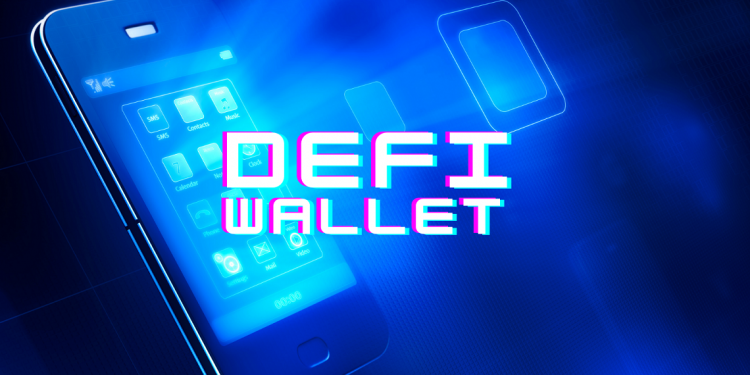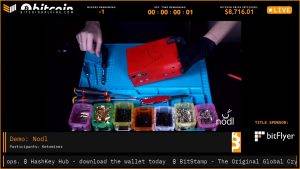In the world of decentralized finance (DeFi), safeguarding your assets is paramount. As you navigate the DeFi landscape, selecting the right wallet becomes crucial for ensuring the enhanced security of your funds. In this article, we will explore different types of DeFi wallets and provide insights to help you make an informed decision.
Introduction
As the popularity of DeFi continues to surge, the need for secure storage and management of digital assets becomes increasingly important. DeFi wallets serve as the gateway to access and interact with DeFi platforms, making it essential to choose a wallet that prioritizes security and usability.
Types of DeFi Wallets
1. Software Wallets
Software wallets, also known as hot wallets, are applications or software programs that run on devices such as smartphones, tablets, or computers. They offer convenience and easy accessibility, allowing users to manage their funds directly from their devices. However, since they are connected to the internet, they are susceptible to online threats and potential attacks.
2. Hardware Wallets
Hardware wallets are physical devices specifically designed to store private keys offline, providing an added layer of security. These wallets keep the private keys isolated from internet-connected devices, minimizing the risk of hacking attempts. Hardware wallets are regarded as one of the safest options for storing and managing DeFi assets.
3. Paper Wallets
Paper wallets involve printing or writing down the private keys and wallet addresses on a physical medium, such as paper. They are entirely offline and are not susceptible to online attacks. However, paper wallets come with their own set of risks, including the potential loss or damage of the physical medium and the need for secure storage.
4. Web-Based Wallets
Web-based wallets, also known as online wallets, operate through web browsers and store private keys on remote servers. They offer convenience and ease of use since they can be accessed from any device with an internet connection. However, web-based wallets are considered less secure compared to hardware or paper wallets due to the potential vulnerability of the servers and the risk of phishing attacks.
5 .Hybrid Wallets
Hybrid wallets combine the convenience of software wallets with an added layer of security provided by hardware components. These wallets use hardware devices, such as USB dongles or secure elements, to store private keys securely, while the software interface allows for easy management and interaction with DeFi platforms.
Factors to Consider When Choosing a DeFi Wallet

When selecting a DeFi wallet, several factors should be taken into account to ensure the enhanced security of your assets. Consider the following:
1. Security Features
Evaluate the security features offered by the wallet, such as encryption, multi-factor authentication, and backup and recovery options. Robust security measures are crucial to protect your private keys and funds from unauthorized access or theft.
2. Development Team and Reputation
Research the development team behind the wallet and their reputation in the crypto community. Look for wallets developed by reputable companies or individuals with a track record of maintaining strong security standards.
3. User Experience and Ease of Use
Consider the user experience and ease of use offered by the wallet. A user-friendly interface and intuitive design can make managing your DeFi assets more convenient and enjoyable.
4 .Compatibility and Integration
Ensure that the wallet is compatible with the DeFi platforms you intend to use. Compatibility and seamless integration with various protocols and decentralized applications (dApps) can enhance your DeFi experience.
5. Community Support and Development
Check the level of community support and ongoing development for the wallet. A vibrant community and active development ensure that the wallet receives regular updates and security enhancements to adapt to the evolving DeFi landscape.
Mobile Wallets for DeFi
Mobile wallets offer the convenience of accessing and managing DeFi assets directly from your smartphone. Explore the different mobile wallet options available, their security features, and user-friendly interfaces. Consider factors such as compatibility, app store reviews, and the ability to connect with various DeFi platforms while prioritizing the security of your funds.
Cold Storage Solutions for DeFi
Cold storage refers to keeping private keys and assets completely offline, disconnected from the internet. Explore cold storage options such as hardware wallets, air-gapped devices, or offline computers. Understand the benefits and considerations of using cold storage for DeFi assets, including protection against online threats and potential hacking attempts.
Multi-chain Wallets and Cross-chain Compatibility
With the growth of interoperability in the DeFi space, multi-chain wallets have emerged to support assets across different blockchain networks. Discuss the advantages of multi-chain wallets, their ability to interact with various blockchain protocols, and the importance of cross-chain compatibility in managing DeFi assets seamlessly.
Security Audits and Wallet Trustworthiness
Consider the significance of security audits for wallets. Explore how wallet providers undergo third-party security audits to ensure the integrity of their code and enhance user trust. Discuss the importance of reviewing audit reports and seeking wallets that have undergone comprehensive security assessments.
Privacy-focused Wallets for DeFi
Privacy is a crucial aspect of managing DeFi assets. Explore wallets that prioritize user privacy through features like coin mixing, stealth addresses, or privacy-focused protocols. Discuss the trade-offs between privacy and usability, and how privacy-focused wallets can enhance the confidentiality of your DeFi transactions.
Wallet Backup and Recovery Best Practices
Highlight the importance of backing up and securely storing wallet recovery phrases or seed phrases. Discuss best practices for creating backups, including offline storage options such as encrypted USB drives or physical backups stored in secure locations. Emphasize the necessity of regularly testing the recovery process to ensure the availability of funds in case of wallet loss or device failure.
Wallet Security Hygiene and Phishing Awareness
Educate users about maintaining good wallet security hygiene. Discuss the significance of keeping wallets and devices updated with the latest software versions, avoiding suspicious links or attachments, and practicing caution while sharing private keys or sensitive information. Provide tips to identify and avoid phishing attempts in the DeFi space.
Hardware Wallet Considerations and Verification
Dive deeper into hardware wallets and discuss considerations such as open-source firmware, supply chain security, and verification techniques to ensure the authenticity of the device. Explain the importance of obtaining hardware wallets directly from the manufacturer or authorized resellers to minimize the risk of receiving compromised devices.
Decentralized Identity Wallets in DeFi
Explore the emerging concept of decentralized identity (DID) wallets and their role in DeFi. Discuss how DID wallets enable users to maintain control over their identity and personal data while securely interacting with DeFi protocols. Highlight the potential benefits of DID wallets in terms of privacy, security, and user-centric control.
Wallet Integration with Security Tools and Services
Discuss the integration of wallets with additional security tools and services to enhance protection. Explore options such as antivirus software, password managers, or hardware security modules (HSMs) that can provide an extra layer of security when managing DeFi assets. Highlight the importance of assessing the compatibility and trustworthiness of these integrated solutions
User Education and Security Resources
Emphasize the significance of user education and awareness in maintaining wallet security. Provide resources, such as security guides, tutorials, or reputable educational platforms, to help users understand the best practices for securing their DeFi wallets. Encourage continuous learning and staying updated on the latest security trends and advancements in the DeFi space.
Social Engineering Attacks and Wallet Security
Discuss the threat of social engineering attacks in the context of wallet security. Explain common tactics used by attackers, such as impersonation, pretexting, or phishing calls. Provide tips and strategies to help users recognize and protect themselves against social engineering attempts that aim to compromise their DeFi wallets.
Two-Factor Authentication (2FA) for Wallets
Highlight the importance of using two-factor authentication (2FA) as an additional layer of security for DeFi wallets. Explain different types of 2FA methods, such as SMS-based codes, authenticator apps, or hardware tokens. Guide users on how to enable and properly configure 2FA for their wallets to strengthen access control and prevent unauthorized access.
Wallet Recovery Services and Tools
Discuss wallet recovery services and tools that can help users regain access to their funds in case of lost or forgotten passwords, damaged hardware wallets, or other unforeseen circumstances. Explain the considerations and risks associated with using such services and provide guidance on reputable options available.
Self-Custody vs. Custodial Wallets
Explore the concept of self-custody wallets versus custodial wallets. Explain the trade-offs between maintaining full control over private keys and relying on third-party custodians for wallet management. Discuss the security implications, user experience, and considerations for choosing between self-custody and custodial wallets in the DeFi ecosystem.
Wallet Security for Institutional Investors
Address the specific considerations and best practices for institutional investors in securing their DeFi wallets. Discuss topics such as robust access controls, secure storage solutions, internal security protocols, and regulatory compliance measures that institutions should implement to protect their substantial DeFi investments.
Smart Contract Wallets and Security Considerations
Delve into smart contract wallets, which are programmable wallets that execute predefined actions based on predefined conditions. Explain the security considerations when using smart contract wallets, such as code audit and review, avoiding vulnerable or unverified contracts, and understanding the implications of interacting with smart contracts in the DeFi ecosystem.
Importance of Regularly Updating Wallet Software
Emphasize the importance of regularly updating wallet software to benefit from the latest security patches, bug fixes, and new features. Discuss how outdated software can expose wallets to known vulnerabilities and potential exploits. Encourage users to stay vigilant and update their wallets promptly when new versions are released.
Wallet Security Best Practices for DeFi Developers
Provide insights into wallet security best practices specifically targeted at DeFi developers. Discuss secure coding techniques, adherence to established standards and protocols, proper key management practices, and the importance of rigorous testing and audits to ensure the robustness and security of the wallets they develop.
Peer-to-Peer (P2P) Wallets and Security Challenges
Discuss the security challenges associated with peer-to-peer (P2P) wallets, which facilitate direct transactions between users without intermediaries. Address considerations such as transaction privacy, counterparty risks, and the importance of conducting due diligence and risk assessments when engaging in P2P transactions through wallets.
Conclusion
Choosing the right DeFi wallet is crucial for ensuring the enhanced security of your digital assets. Consider the different types of wallets, evaluate their security features, user experience, compatibility, and community support. By making an informed decision, you can confidently manage your DeFi holdings and participate in the decentralized finance ecosystem









